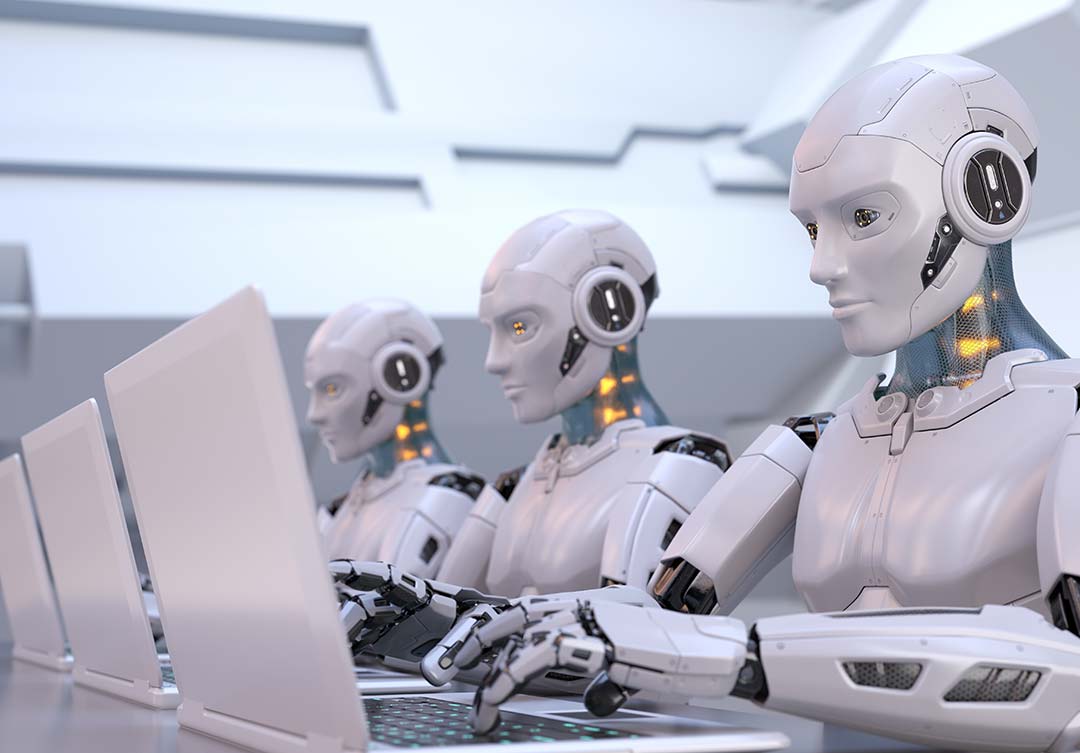Artificial intelligence is no longer just something specific to science fiction movies or novels. The development of technology day by day enables artificial intelligence technologies to be more integrated into our lives. This radically changes the behavior we are used to, compared to hundreds of thousands of years ago when humanity existed. In order to keep up with the times, sectors in which both individuals and people take active roles need to improve themselves in artificial intelligence. Countries or companies that ignore the importance of artificial intelligence, unfortunately, cannot stay in the future.
Artificial intelligence, defined as computer programs that basically aim to imitate human behavior, first appeared in the second half of the 1900s. The defense industry has a great impact on this. Thanks to the added inputs, artificial intelligence, which uses methods such as machine learning and deep learning, will make its own inferences after a while and become competent in subjects that have not been input before. For example, chatbots used in the banking industry aim to respond to customer requests using both voice and text recognition methods. In summary, we can define artificial intelligence as a system that imitates human perception, capabilities, approach to problems and decision-making mechanism.
Artificial intelligence is used in many industries today. Traffic calculation in navigation programs, smart vehicle systems, face and voice recognition programs, etc. We can see the effect of artificial intelligence in many areas. So basically, the more efficient functioning of the systems is seen as the primary priority of artificial intelligence. So much so that 77% of the applications we currently use contain artificial intelligence.
Security concerns in the banking and finance sector, which is the locomotive of commercial life, are increasing with the emergence of technology and new crime methods. Therefore, in the field of financial technologies called fintech, artificial intelligence emerges as one of the most important tools in the fight against internet hackers. Calculation of location during withdrawal of money with QR code in banking, taking security measures against attacks by internet hackers and other measures.
It aims to protect its customers from such attacks. On the other hand, factors such as the provision of personal loans and payment systems in the banking and finance sector can be given as an example of the use of artificial intelligence in this sector.
Artificial intelligence reduces the time spent, while increasing the work volume, work consistency and quality by offering some recommendations in long and complex processes. In this way, long and boring jobs are concluded quickly with less effort thanks to automation technologies. For this reason, it is seen that artificial intelligence-oriented start-ups have increased 14 times in the last 20 years.
As a result, investors invest in these start-ups. It is seen that the investments received by start ups in this field since 2000 have increased 6 times.
Frequently, monotonous transactions of the financial sector such as money transfers, customer reviews, providing and procuring loans can be solved more effectively thanks to artificial intelligence. Therefore, institutions that benefit from these advanced technologies both provide more effective and quality service to their customers and reduce transaction costs thanks to automation.
The financial sector is always in life. Every transaction we do today has a financial dimension. For example; We consume energy even while using our computer, we participate in commercial life. We shop with our credit cards or charge our fees through banks. Therefore, it is unthinkable for a sector that is so involved in life to fall behind technology.
With the developing technology, it becomes very important to make our transactions quickly in a fast flowing life. Fast access features, technologies such as face and voice recognition and location-based security control used to speed up transactions make it easier for the financial sector to serve customers securely and quickly. In this way, both the risk and the human labor used are reduced and costs are reduced. This therefore increases the profitability of financial institutions.
The use of artificial intelligence technologies in mobile applications, websites and other areas that customers come into contact with provides a positive return by increasing customer satisfaction in the banking sector through predictions. Happy customers, on the other hand, continue to work with the institutions they work with and support the profitability of companies in the long term. Ease of use only, it contributes not only to customers but also to employees. Employees who perform transactions automatically are both happier and created by humans rather than robot.
The use of artificial intelligence technologies in mobile applications, websites and other areas that customers come into contact with provides a positive return by increasing customer satisfaction in the banking sector through predictions. Happy customers, on the other hand, continue to work with the institutions they work with and support the profitability of companies in the long term. Ease of use only It contributes not only to customers but also to employees. Employees who perform transactions automatically are both happier and contribute to the business by using human creative abilities rather than becoming a robot. Employee happiness also affects the success of human resources.
There is no doubt that artificial intelligence will fundamentally change working styles and working lives, because the reason for the emergence of artificial intelligence and machine learning is to solve people's work faster and more effectively. This shows that some business lines will gradually be dominated by artificial intelligence.
For example; By 2023, it is predicted that artificial intelligence supported tele-secretary services will reach the level of 8 billion. This shows that people working in this field will be unemployed and will enter new sectors.
It would not be correct to say that artificial intelligence has only negative effects on employee life. A study shows that the use of artificial intelligence on the job increases productivity by 40%. In this way, employees can give the desired result more quickly and efficiently. This increases both job quality and employee satisfaction while reducing costs. In other words, the use of artificial intelligence will increase day by day in the long term. In addition, it is among the frequently mentioned topics that home-working models will become widespread and more efficient thanks to artificial intelligence. It is also easier for managers and human resources employees to evaluate employee productivity and happiness with the use of artificial intelligence. Because it is predicted that unwanted behaviors such as mobbing, harassment and discrimination can be detected more easily thanks to artificial intelligence and by preventing this, harmony within the team will increase.
It cannot be denied that the world is getting closer to technology every day. Artificial intelligence shows itself in many sectors as a result of this convergence. Due to this effect, while mechanical works are entrusted to artificial intelligence, people are more encouraged to use their creative abilities. By 2025, it is expected that the artificial intelligence market will reach the levels of 60 million dollars, and in 2030, the global GDP will reach 15.7 trillion dollars thanks to artificial intelligence. This change was realized with a great momentum in the world that Turkey is not far behind. Still ready to invest in Turkey it is exceptionally well maintained with artificial intelligence technology. To put it simply, the live aid robot that we come across on many sites shows us how common this is. Customer recognition technologies are implemented and we use integration into applications is another example that shows the use of technology is increasing day by day.
Technology is changing the order we are used to from beginning to end. Survival in this order depends on keeping up with technology. If the financial sector, which is an indispensable element of commercial life, closely follows the developments in artificial intelligence and follows the developments in the world, it can offer advanced customer experience at low cost in terms of both security and efficiency. On the other hand, timely observation of the positive and negative effects of artificial intelligence on business life and taking precautions against them will prevent problems in the early term.
Share:
Related Articles
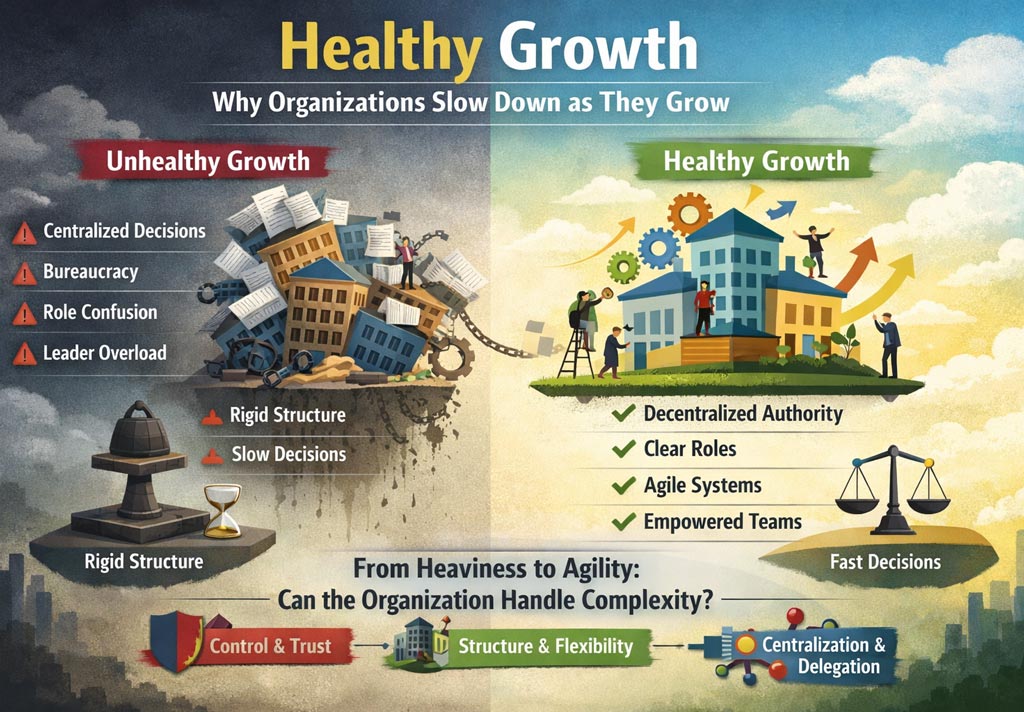
Healthy Growth: Why Organizations Sl ...
Companies want to grow. More market share, higher revenues, larger organiza ...

Sustainable Leadership: Power Built ...
Today, the concept of sustainability sits at the center of almost every str ...

Why Do Managers Struggle with Genera ...
A reality long felt in the business world is this: there is a natural diffe ...

Leadership
Support, love, and trust received in childhood nurture self-confidence, cou ...

Generation Z: Not Just a Mirror, but ...
One of the most frequent complaints in today’s business world is: “Young em ...

A New Era in Business with Artificia ...
The Industrial Revolution began with steam. Then came electricity, computer ...

The New Face of Entrepreneurship: Wo ...
The new generation of entrepreneurship is no longer solely profit-driven; i ...

Understood Employees Contribute and ...
In the corporate world, we often hear statements like: “They’re talented, b ...

The Silent Power of Corporate Succes ...
In today's business world, organizations operate in an environment shaped b ...

Customer Relations and Training in B ...
Bancassurance, a business model in which banks market insurance products to ...

What Awaits the Business World? A St ...
Digitalization is no longer just a technological trend but a necessity for ...

Digital Transformation in Conflict M ...
Conflict is a reality we encounter in all aspects of life. Whether at home, ...

The Road to Success: Market Dynamics ...
In today’s rapidly changing market conditions, the importance of management ...
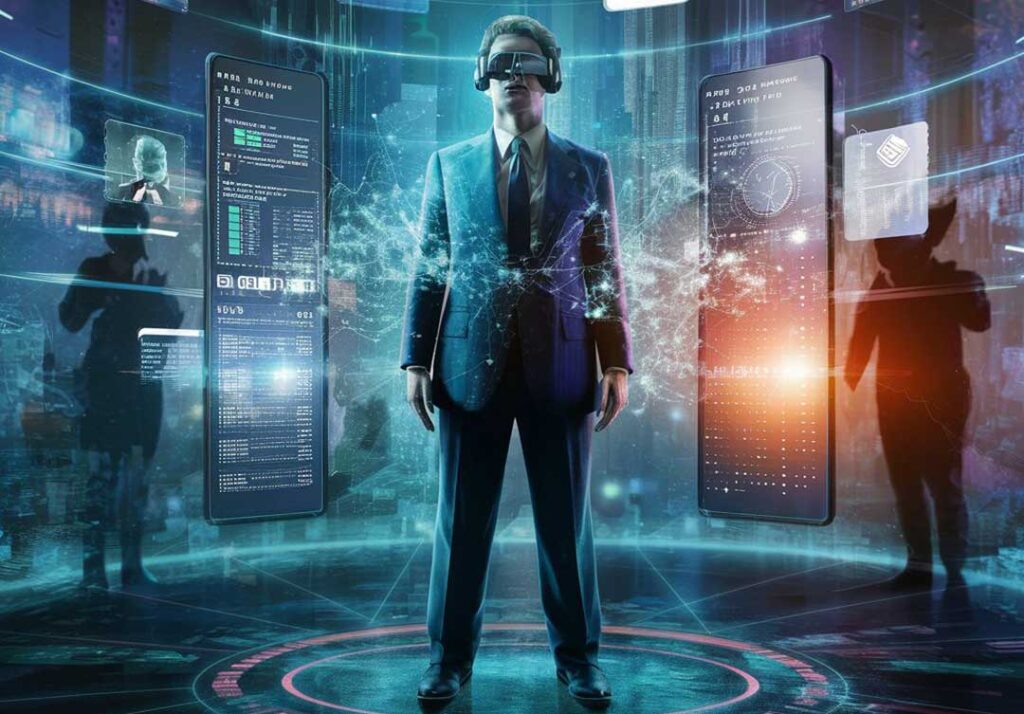
Leadership in the Digital Age: A New ...
Leadership in the digital age requires embracing continuous learning, innov ...

Mastering Risk Management
Mastering risk management is not merely an option for businesses but a nece ...

International Banking in Germany: A ...
Germany, with its strong industrial structure, high-technology products, an ...
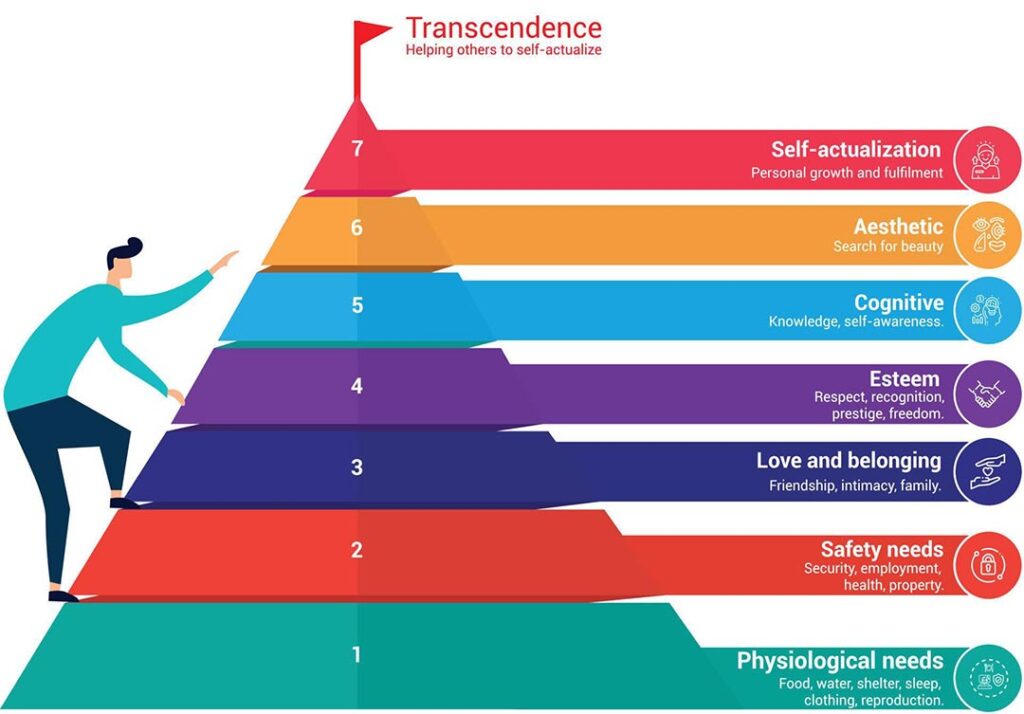
Leadership and Maslow's Hierarchy of ...
Abraham Maslow's hierarchy of needs is a fundamental psychological theory u ...

Leadership and Sustainability of Org ...
Today's business world is characterized by continuous change, technological ...

The Importance of Coaching Skills f ...
The Importance of Coaching Skills for LeadersCoaching skills are essenti ...

Fintech in Turkey: The Rise of Finan ...
Fintech in Turkey: The Rise of Financial Technology

Bancassurance
Bancassurance is a business model that is among the financial services offe ...

Banking and Frankfurt
When the banking and finance sector in Europe is analyzed, it is seen that ...

Digital Banking and Germany
Digital banking is a banking service where customers can do their banking o ...

Banking in Germany
Euro used since 2002 in The Eurozone, the currency of 19 EU members. There ...

Strategic Communication
Strategic communication plays a critical role in the success of an organiza ...

Importance of Supply Chain
The supply chain is a critical factor in which a company manages the flow o ...

Key to Success: Going Digital
Digital transformation is a transformation process that aims to increase th ...

Welfare
Poverty and inequality are one of the biggest challenges the current societ ...
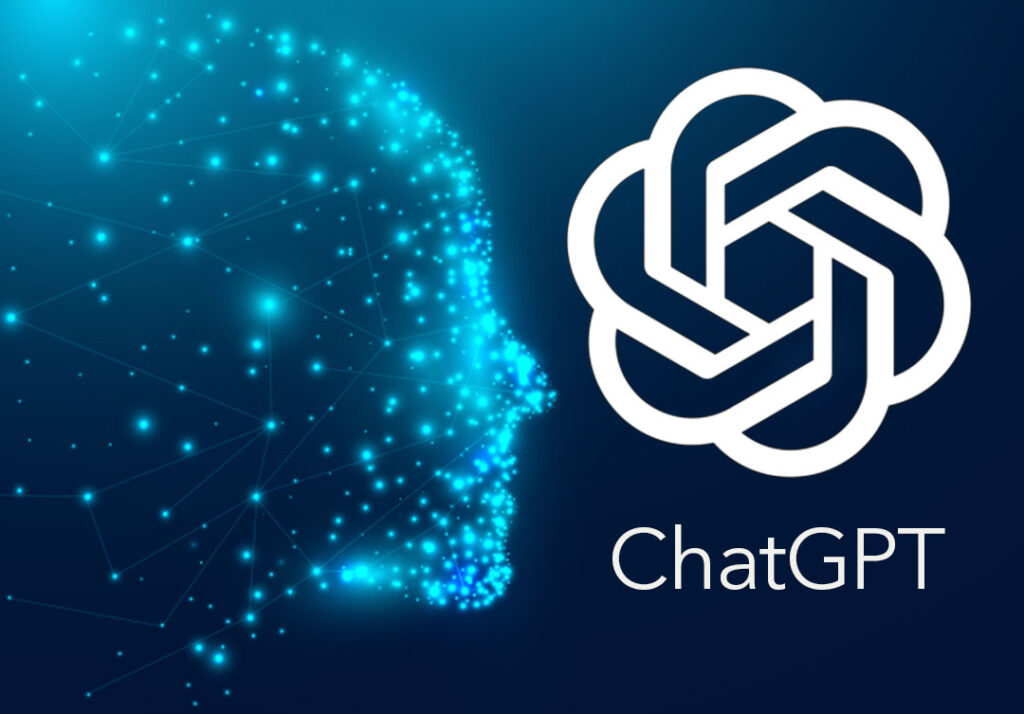
ChatGPT
ChatGPT, developed by the OpenAI company known for its work and research in ...

What is Emotional Intelligence and w ...
Emotional intelligence (also known as emotional quotient or EQ) is the abil ...

The Importance of Women's Employment ...
Women's participation in the workforce is closely related to the level of d ...

Digital Banking II – Digital Banking ...
A serious step taken for the spread of “digital banking” in Turkey, providi ...

The Perception of Morality within Ma ...
If everybody in the world jumped out of a window, would you? This question ...

Digital Banking
Digital banking is a banking technology that offers customers the opportuni ...

Banking, Artificial Intelligence and ...
We have heard the concepts of metaverse, artificial intelligence and machin ...

Green Asset Ratio
Sustainable finance has an important place among the investments made for t ...

Servant Leadership
There is an effective form of management that we often hear about today: se ...

Sustainability In The Global Banking ...
Before Covid-19 wreaked havoc on the world’s economies, the global banking ...

Revolution of Digital Banking
With the European Central Bank considering to investigate for a digital cur ...

Taking Action and Making Decisions i ...
Uncertainty is the fact that an event is not within the framework of certai ...

Wind of Change
Change is an important concept that must be managed for employees at all le ...

Organizational Justice
“What is justice? Giving water to trees. What is injustice? To give water t ...

Open Banking
Digital transformation has started to show its effects in every aspect of o ...

Digital Literacy And Corporate Life
There are many innovations that managers and employees need to follow in or ...

Financial Literacy
The words money and economy are two important concepts that have a great pl ...

Sustainability and Bank
The solutions we have found to our various needs throughout history and ada ...

Adaptability, Flexibility and Leader ...
Being able to adapt to changing conditions is very, very important not only ...

Creativity and Leadership Relationsh ...
The world is getting more competitive every day. For this reason, the servi ...

Competitive Analysis and Banking Sec ...
Competition analysis requires you to examine your direct and indirect compe ...

Delegation in Management
The statements "two heads are better than one" or "teamwork makes the dream ...

Climate Change
All creatures evolve to best adapt to environmental impacts. Those who are ...

Change of Banking Service Channels i ...
Global crises such as the pandemic, force the existing structures to change ...

Innovation
It is undeniable that innovation has a very important place in today's worl ...
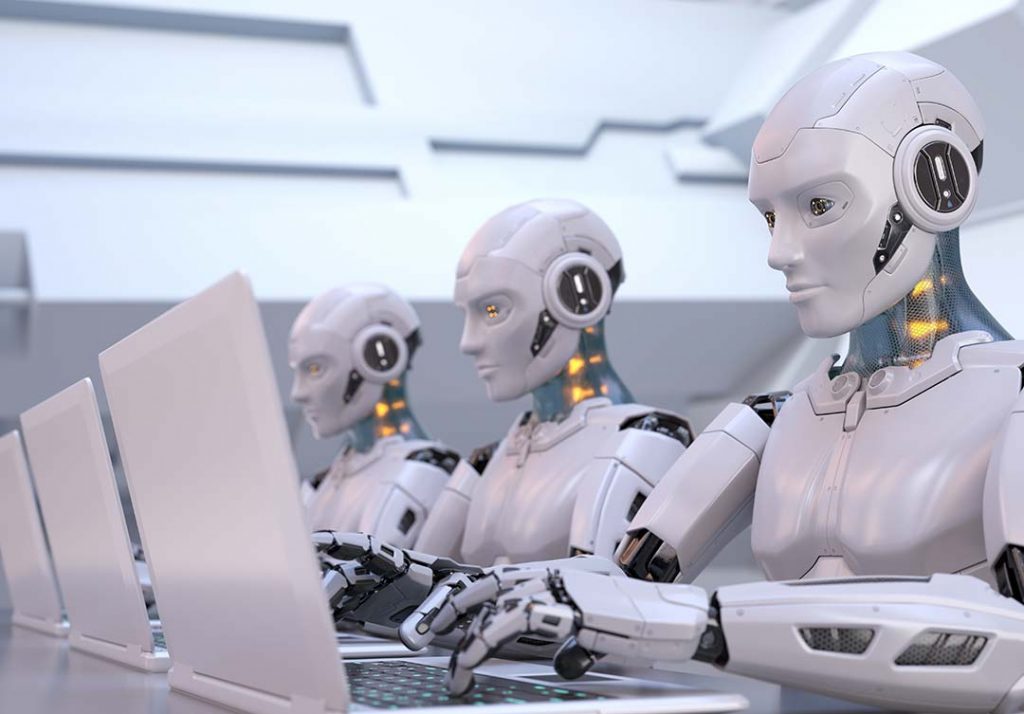
Artificial Intelligence
Artificial intelligence is no longer just something specific to science fic ...

Entrepreneurship
Entrepreneurship is the process of starting a new business that incorporate ...

Global Leadership
The world is changing day by day and the information we have today is out o ...

Resilience and Leadership
We encounter many events in life that cause us difficulties and stress. How ...

Entrepreneurial Spirit for Leaders
Why is important for success? The conventional perception of entrepreneursh ...

Finance Leadership in a Pandemic
Crises bring along a period in which institutions need to review their fina ...

Crisis Management
Crisis is a state of tension that puts the existence and goals of an organi ...

Strategic Leadership and Pandemic
Strategic Leader is the person who sets the roadmap to achieve the ultimate ...

Awareness, Appreciation, Success
It is very important for a person to recognize himself, discover his power ...

Woman and Career
People who are raised by unemployed mothers have a mother model in their mi ...

Conflict Management
In the broadest sense, conflict is disagreement between two or more people ...

Leading with Kindness
Kindness is an important virtue. Kindness in all areas of life makes relati ...
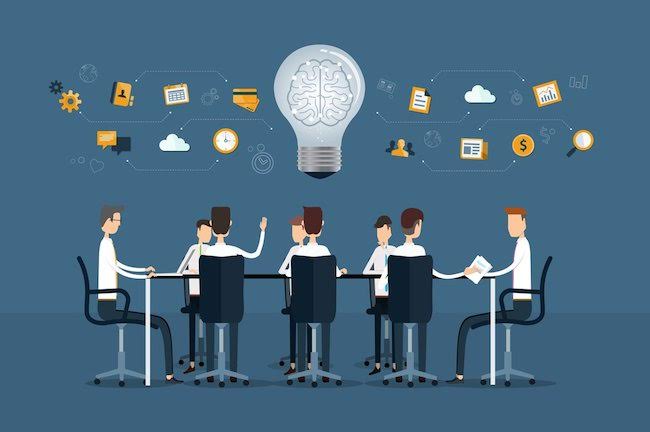
Smart Meetings
Meeting management is the process of managing all stages and components of ...

Negotiation Management
Negotiation is defined as a dialogue aimed at reaching a common and benefic ...

Virtual Leadership
The repercussions of the digitalization process in business life were sprea ...

Manager and Patience
Patience is an important concept in management. Patience is active, not pas ...

Being All Ears
Human beings differ from other creatures in their way of communicating. Com ...

Networking
The fact that managers in the corporate world act with awareness of network ...

Asking Strong Questions
For managers, asking a strong question is an important skill. Managers, who ...

Managing Yourself
The manager at work is in communication with the other parts of the busines ...

Mental Immunity
In the fight against Coronavirus (Covid-19) pandemic, knowledge and awarene ...
